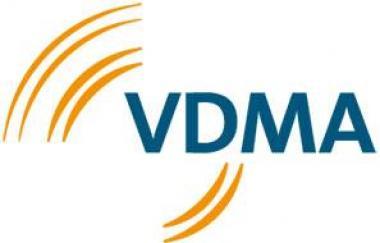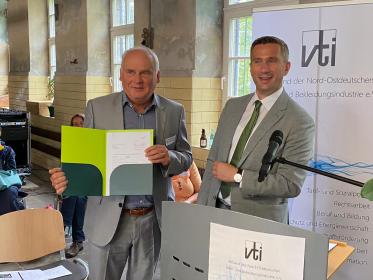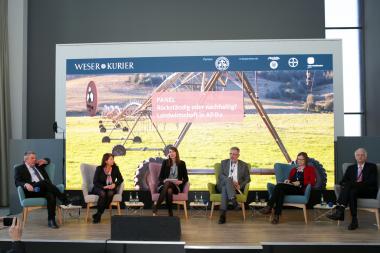VDMA continues technology webtalks
- Technology webtalk on sustainable denim production
The next VDMA technology webtalk is scheduled for 12th November 2020 (2 pm - 4 pm CET). The topic will be “Sustainable denim production: latest finishing technologies”.
The presenters and their topics at a glance:
Volker Kunzmann, FONG’S EUROPE, will present highly efficient and innovative wet finishing solutions for denim by combining modular systems adapted to the product and customer’s and local specifications.
Hans Wroblowski, A. Monforts Textilmaschinen, will speak about advanced denim finishing technologies with a focus on ecological and economical energy consumption. Furthermore, a new yarn dyeing process will be presented.
Dr. Jürgen Thoms, PLEVA, will present online measuring and control devices for sustainable and cost-effective denim finishing. Latest technologies in straightening, preskewing, moisture management and quality reporting are shown.
After the presentations, the three experts will be available to answer the participants' questions. Free registration is still possible.
VDMA Webtalks Fong’s Europe GmbH A. Monforts Textilmaschinen GmbH & Co. KG PLEVA Sensors and Controls
VDMA e. V. Textilmaschinen
































